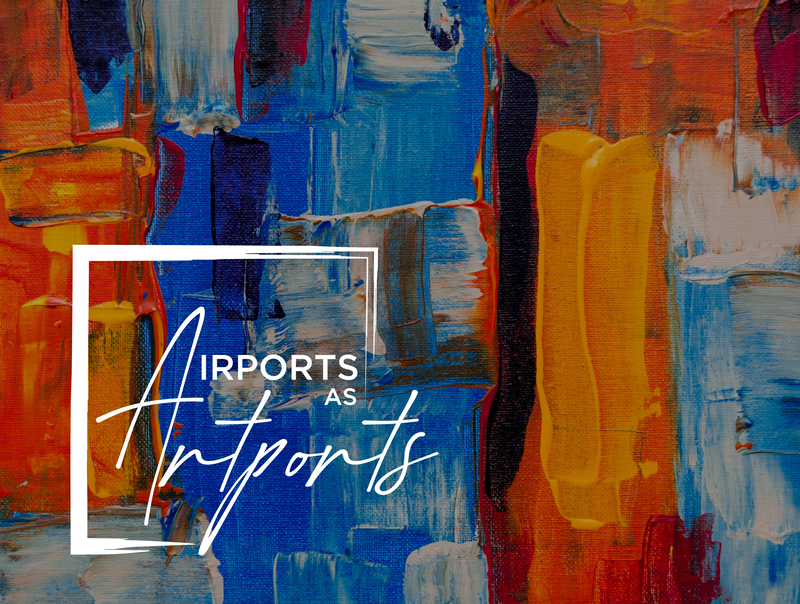INTERNATIONAL. The Mastercard Economics Institute has released its Travel Industry Trends 2023 report, offering key insights into the state of global travel which it said are punctuated by shifting economic landscapes, persistent consumer demands and a reopening of Mainland China.
The research shows that consumers are taking advantage of a more traditional travel ecosystem in 2023, prioritising leisure travel and “pioneering new corridors around the world”.
Mastercard Economics Institute revealed that, in the face of a changing economic landscape, post-pandemic preferences for experiences over ‘things’ (tourist spending in stores) and a consistent demand for leisure travel shape the 2023 outlook.
Initially lagging leisure travel, business travel found its footing in the latter half of 2022, according to the research findings, especially in cultures prioritising a return to office working.

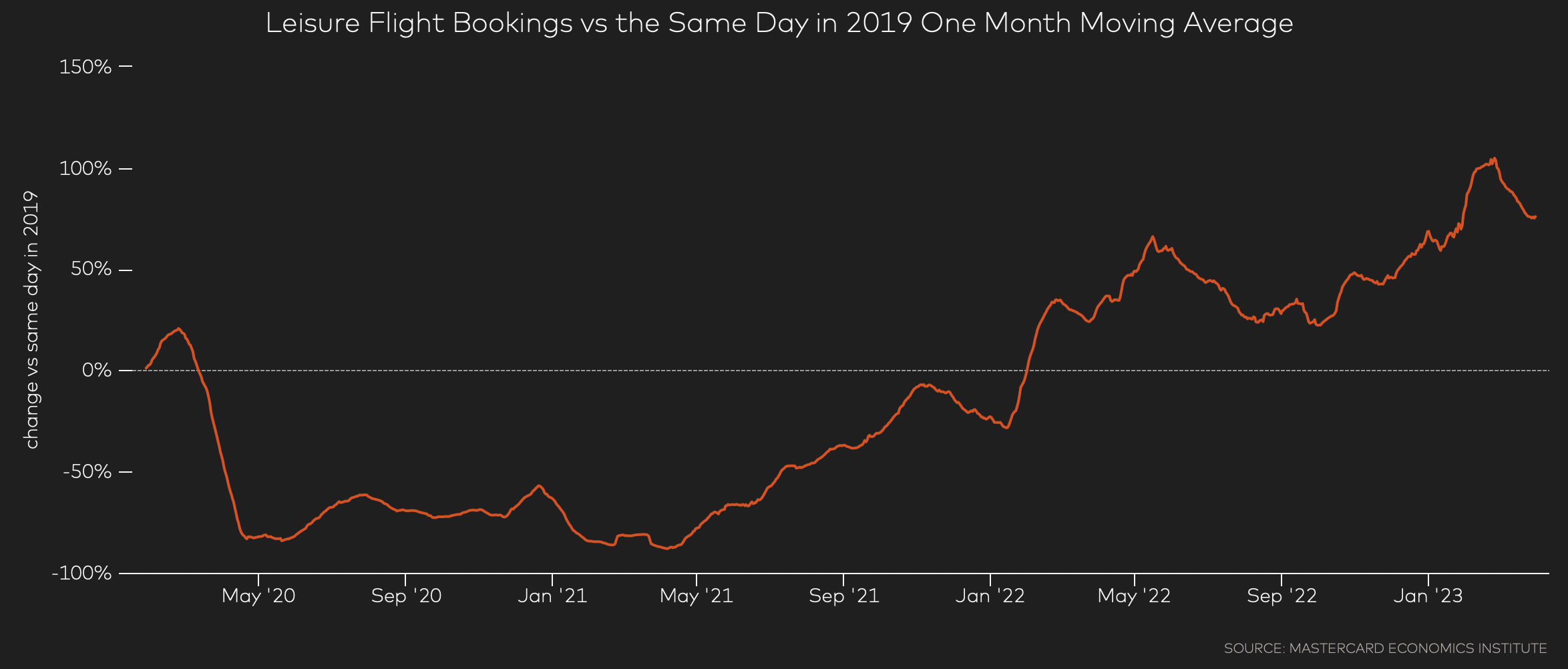
With an uncertain economy providing some cross-market turbulence, Mainland China’s reopening is expected to bolster growth globally with concentrated impact in Asia Pacific, according to Mastercard Economics Institute estimates.
Here are four key takeaways from the report:
Leisure and business travel are growing at the same pace
Driven by the long-awaited lifting of travel restrictions in Asia, global leisure travel remains robust, with flight bookings up roughly +31% in March 2023 compared to the same month in 2019. In the second half of 2022 into early 2023, corporate flight bookings caught up to leisure flight bookings driven by regions with a strong return to office culture.
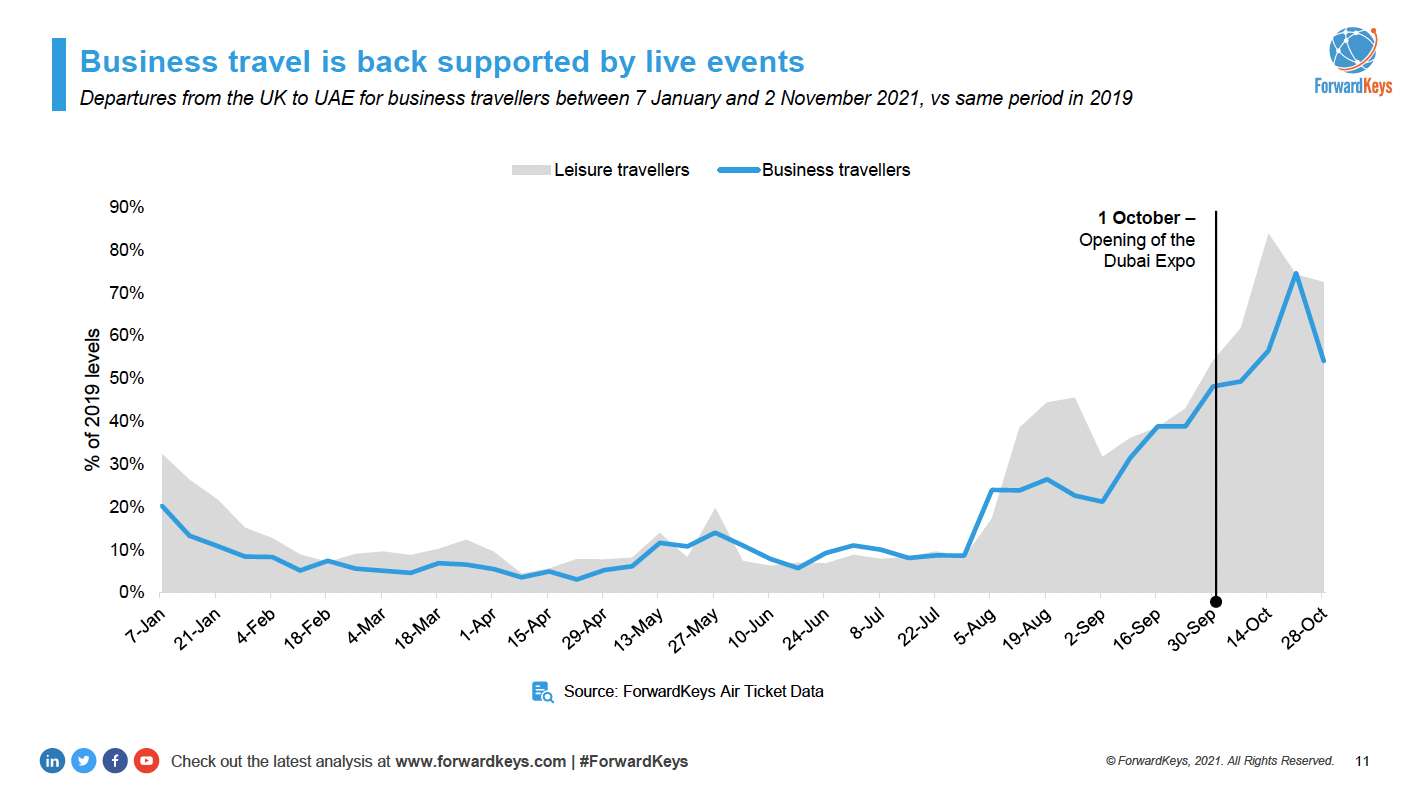
Global leisure and business travel are now growing at the same rate. The Mastercard Economics Institute insights show demand for in-person meetings, with the most significant growth in commercial travel and entertainment expenses being led by Asia Pacific and Europe, up +64% and +42% respectively, between January-March 2023.
Mainland China’s reopening benefits global and Asia Pacific tourism
China’s reopening following tight COVID regulations comes at a time when it will likely have a positive impact on the experience economy as pent-up demand for travel is expected to drive strong tailwinds. Notably, by March 2023 spending on experiences was 93% of where it was in 2019 despite minimal travel last year.
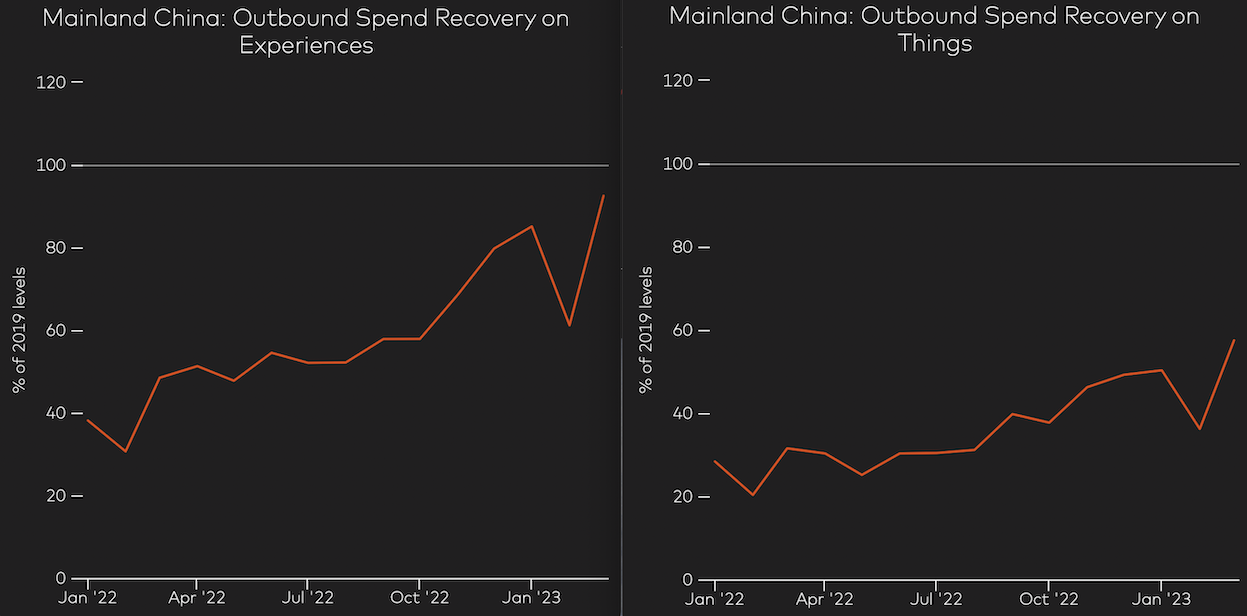
Economies in the Asia Pacific region could be obvious beneficiaries of China’s opening, given their strong ties to international trade, tourism and geographical proximity. Based on Mastercard Economics Institute estimates, other countries that are expected to benefit include Germany, France and Brazil, which could see an export boost to China as the economy recovers.
Travellers establish new corridors
As consumers are enjoying higher incomes and returning to some level of pre-pandemic comfort, they’re also starting to venture further from home to new locations. For travellers from the Asia Pacific region, the US and Australia remain favourite destinations for spring and summer journeys. Beginning in late 2022, visitors to Hong Kong started to increase, with the destination edging its way into the top ten list and soaring to #3 in February 2023.
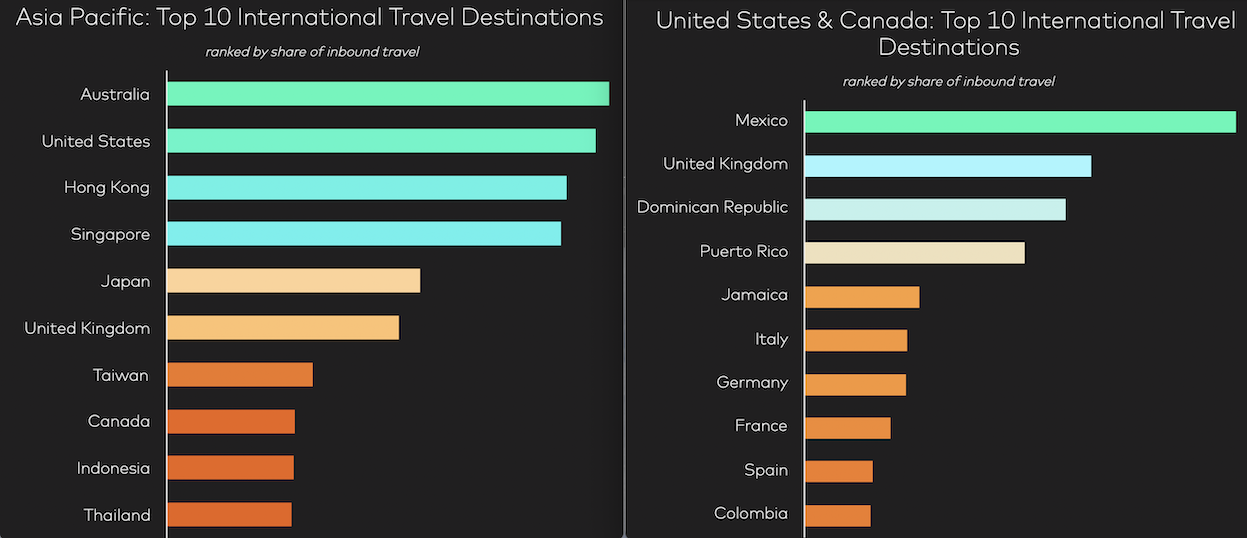
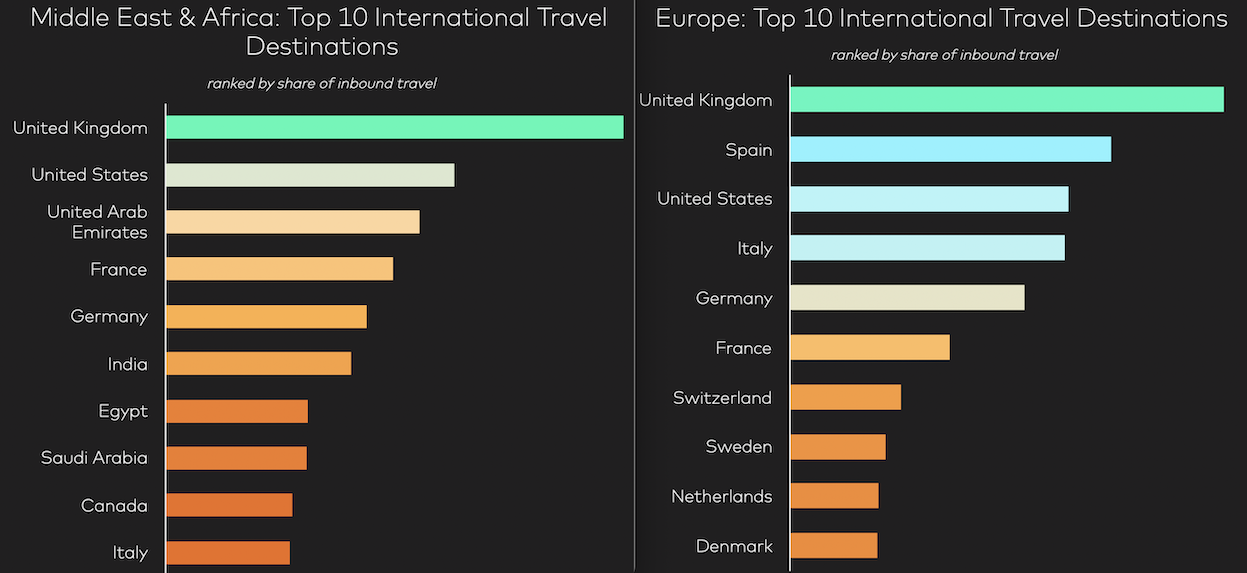
Luxury travel experiences, such as splurging on high-end accommodation and luxury travel in places such as France and Italy will likely entice Chinese tourists emerging from a zero-COVID environment to rejoin the experience economy, Mastercard Economics Institute noted.
Tourists continue to prioritise experiences
Preference for experiences over things persists, and travellers are demonstrating new demand for the unique. Potentially influenced by social media and entertainment, travellers are landing in lesser-known destinations in search of cultural immersion.
As of March 2023, global spending on experiences was up +65% while spending on things rose +12% compared to 2019. Experience-oriented spending is surging in certain corridors where pandemic lockdowns have expired, but Chinese tourists who traditionally over-index on luxury retail compared to other tourists could provide a boost to goods spending across markets, Mastercard Economics Institute suggests.

Mastercard Economics Institute Chief Economist for Asia David Mann said: “In 2023, travel came roaring back in Asia as China reopened its borders and other markets eased the last of their pandemic-era travel restrictions.
“As people around the world prioritise experiences over things, the strong demand for travel is expected to last far beyond the initial ‘revenge travel’ bump. As we look ahead to the peak summer travel season, the big question is whether flight and accommodation supply can keep up with demand.”
You can view the full Travel Industry Trends 2023 report here. Other reports and insights from the Mastercard Economics Institute can be found here.











